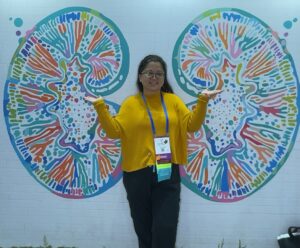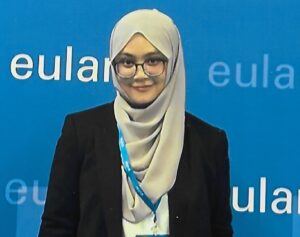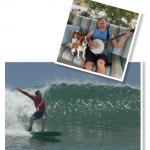Dr. Firestein previously hosted an exchange with EULAR scholars at the 2017 ACR annual meeting, also held in San Diego. He was pleased to reprise this role because he greatly enjoyed his participation the first time and hoped others would find the program valuable.
The program, which took place partly at UCSD’s ACTRI, included lectures on clinical and career-building topics, a tour of the facility, breakout sessions with mentors, presentations by the scholars, shared time with other international attendees, and well as participation in the fuller ACR Convergence 2023 program, including the Global Rheumatology Summit.
“The scholars get the benefit of presenting their science in a low-stress environment and getting feedback without it being publicly broadcast in the context of a meeting,” explains Dr. Firestein. He notes that multiple scholars presented on topics related to bioinformatics, and most presentations were focused on clinical research topics (as opposed to bench science), both reflecting trends in the field.

Dr. Traboco
One of the APLAR exchange scholars, Lisa Traboco, MD, a rheumatologist at St. Luke’s Medical Center, Bonifacio Global City, Philippines, is pursuing a Master of Health Informatics. “It made me feel really happy, being able to present some of my work to a person like Dr. Firestein, whose name I’ve only read about in textbooks.”
Dr. Traboco had previously met many of the participants and other ACR attendees through various kinds of virtual contact, but she says that having an in-person experience elevated the connection, a sentiment shared by other scholars.
“I think face-to-face interactions are still important when you are establishing friendships or collaborations,” says Dr. Firestein. “Once you’ve done that, remote meetings have greater meaning, and they work much better.”

Dr. Zakaria
“[The Global Research Exchange program] is great for exchanging ideas and getting to know people, which can benefit your future career,” says Nurul Aulia Binti Zakaria, MBBS, MMed, assistant professor at International Islamic University Malaysia, Kuala Lumpur.
“I enjoyed discussions with academics from an institution in the U.S., participating in a group of international scholars giving feedback to each other and seeing how academia works in different countries,” says Antony Psarras, MD, PhD, academic clinical lecturer in rheumatology, University of Oxford, England.
Dr. Traboco notes that APLAR has been comparatively less active internationally than the ACR and EULAR, so she wanted to do her part to help change that. She explains that the head of APLAR’s International Affairs Committee, Yoshiya Tanaka, MD, PhD, has been pushing APLAR to engage more on an international level, an effort Dr. Traboco supports. Dr. Tanaka, who also gave a presentation to the scholars, is dean of the Graduate School of Medical Science, University of Occupational and Environmental Health, Kitakyushu, Japan.

